Mental Relaxation
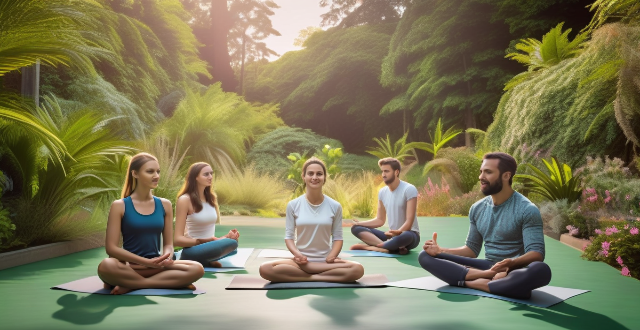
How does yoga combine physical activity with mental relaxation ?
Yoga integrates physical activity and mental relaxation through various practices like asanas, pranayama, dhyana, and dharana. Asanas improve flexibility, strength, and endurance, while vinyasa increases heart rate for cardiovascular exercise. Pranayama techniques enhance lung capacity and stamina. Meditation calms the mind, and concentration practices sharpen focus. Yogic philosophy promotes emotional stability. Mindful movement connects physical practice with mental awareness, synchronized breath reduces strain, and restorative poses allow for deep relaxation. Overall, yoga offers a holistic approach to wellness by harmoniously blending body and mind.

Are there specific exercises that help improve mental health ?
Exercises like yoga, meditation, aerobic exercise, resistance training, MBSR, and Tai Chi can help improve mental health by reducing stress, anxiety, and depression symptoms while promoting relaxation, self-awareness, and social interaction.

What is the relationship between exercise and mental health ?
Exercise has a profound impact on mental health, enhancingExercise has a profound impact on mental health, enhancing reducing stress, improving sleep quality enhancing mood and cognitive function, reducing stress, improving sleep quality, and fostering social interaction. Regular physical activity stimulates the release of neurotransmitters like endorphins, serotonin, and dopamine, leading to improved mood, relaxation, and better cognitive abilities. It also helps manage cortisol levels, promotes deeper sleep, and provides emotional support through group activities, ultimately contributing to overall mental well-being.

How do competitive sports impact mental health ?
Competitive sports have a significant impact on mental health, with both positive and negative effects. Positive effects include increased self-esteem and confidence, improved social skills and teamwork, stress reduction and relaxation, and goal setting and achievement. Negative effects include pressure to perform, fear of injury, burnout and overtraining, and unhealthy weight management practices. It is essential for athletes to manage the pressures associated with competition and prioritize their mental and physical health above all else. Seeking support from coaches, teammates, friends, and family members can also help athletes navigate the challenges of competitive sports and maintain good mental health.

How can mental training improve physical abilities in athletes ?
Mental training is crucial for athletes as it enhances physical abilities by improving focus, managing stress, and promoting a positive mindset. Techniques such as visualization, self-talk, and emotional intelligence contribute to better performance.

How do health management apps help individuals manage stress and improve mental wellbeing ?
Health management apps offer various features to help individuals manage stress and improve their mental wellbeing, including mindfulness exercises, sleep tracking, physical activity tracking, nutritional guidance, social support, relaxation techniques, goal setting, and educational content.
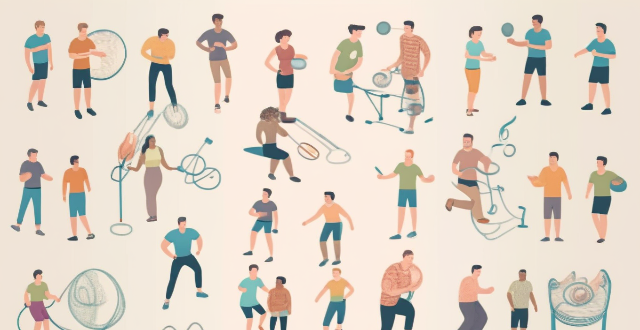
How do athletes cope with the mental stress of competition ?
Athletes employ various strategies to cope with mental stress during competitions, including visualization and imagery, breathing techniques, goal setting, social support, mindfulness and meditation, professional help, and maintaining healthy lifestyle habits. These methods range from mental preparation techniques to seeking professional guidance and engaging in leisure activities for relaxation and enjoyment. By incorporating these strategies into their routines, athletes are better equipped to handle the psychological demands of competition.
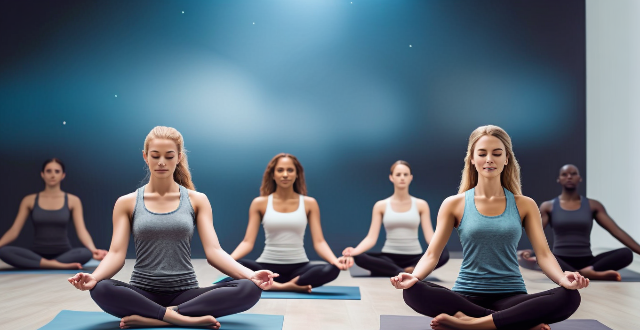
Can simple yoga help with stress relief and relaxation ?
Yoga, a practice that originated in ancient India, combines physical postures, breathing techniques, and meditation to promote overall well-being. Many people turn to yoga as a way to manage stress and find relaxation. Simple yoga can make a difference by providing both physical and mental benefits. Practicing yoga regularly can help improve flexibility and strength, better posture, increased energy, reduced stress and anxiety, improved focus and concentration, enhanced mood, better sleep, and mindfulness. To incorporate simple yoga into your routine, find a comfortable space, start with basic poses, focus on your breath, incorporate meditation, be consistent, and join a class or find online resources. By doing so, you can create a calming yoga routine that works for you and positively impacts your overall well-being.

Is high-intensity interval training (HIIT) more effective for mental health than steady-state cardio ?
This article explores whether high-intensity interval training (HIIT) is more effective for mental health than steady-state cardio. HIIT involves short bursts of intense activity followed by periods of rest or low-intensity activity, while steady-state cardio involves maintaining a consistent level of activity for an extended period. Both types of exercise offer benefits for mental health, such as improved mood, reduced anxiety and stress, increased self-efficacy, relaxation, and social opportunities. However, they may appeal to different individuals based on their preferences and goals. Incorporating both types of exercise into a regular routine can provide the most comprehensive benefits for mental health.

How can schools improve student mental health ?
Improving student mental health is crucial for academic success and overall well-being. Schools can help by creating a supportive environment, implementing mental health programs, providing access to resources, promoting healthy habits, addressing bullying and harassment, offering extracurricular activities, monitoring academic pressure, and encouraging self-care. By implementing these strategies, schools can create an environment that supports the mental health of all students, allowing them to thrive both academically and personally.
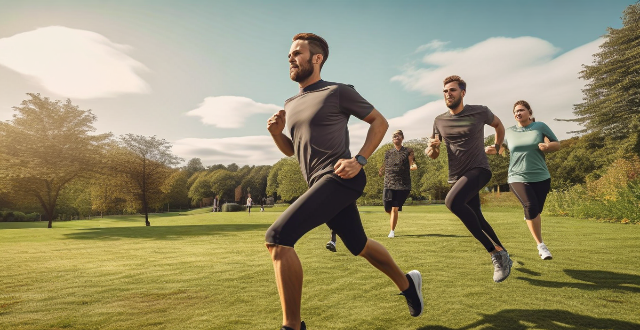
What role does mental health play in the overall fitness regime of popular celebrities ?
This article explores the importance of mental health in maintaining a healthy lifestyle and how celebrities incorporate it into their fitness routines. It discusses stress management, motivation and discipline, emotional well-being, mindfulness practices, personal trainers and coaches, and balanced diet and sleep as key components of celebrity fitness regimes that prioritize mental health.
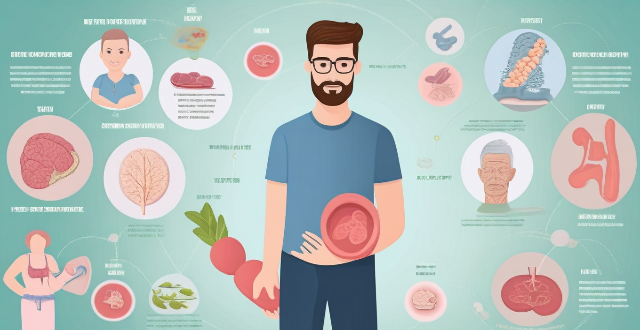
How can older adults benefit from exercise in terms of mental health ?
Exercise is crucial for maintaining and improving mental health in older adults. It enhances mood, reduces depression symptoms, improves cognitive function, manages stress, and provides opportunities for social interaction. Incorporating regular exercise can significantly promote overall well-being in the aging population.

Does exercise influence emotional regulation and mental well-being, which in turn affects cognitive processes ?
The article explores the relationship between exercise, emotional regulation, mental well-being, and cognitive processes. It suggests that regular physical activity can positively impact emotional regulation by reducing stress levels, improving self-esteem, and providing a healthy outlet for negative emotions. Exercise also contributes to improved mental well-being by alleviating symptoms of depression and anxiety, promoting relaxation, and providing opportunities for social interaction. These factors, in turn, influence cognitive processes such as attention, memory, problem solving, and decision making. Overall, the article concludes that incorporating exercise into daily routines can have numerous benefits for overall health and well-being.
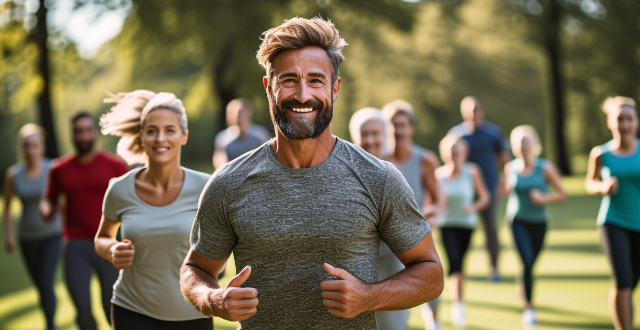
Is there a difference in mental health benefits between individual and group exercises ?
Exercise plays a vital role in maintaining good mental health, with both individual and group exercises offering unique benefits. Individual exercises provide flexibility, focus, and personal challenge, while group exercises offer social support, motivation, and accountability. Both types of exercise have been shown to reduce stress, anxiety, and depression while improving mood, self-esteem, and cognitive function. Ultimately, finding an activity that you enjoy and can consistently incorporate into your lifestyle is key to maintaining good mental health through exercise.

How does exercise contribute to mental rejuvenation ?
Exercise plays a crucial role in mental rejuvenation by releasing endorphins, improving blood flow, enhancing neuroplasticity, reducing stress, improving sleep quality, facilitating social interaction, and boosting self-esteem. Regular physical activity can significantly contribute to improved cognitive functions, emotional stability, and overall mental well-being.
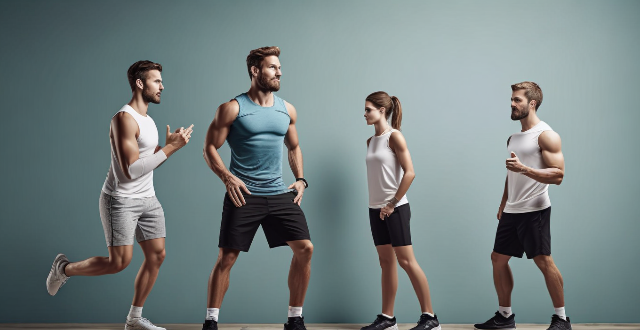
How can mental toughness be developed in athletes through sports psychology ?
The article discusses the importance of mental toughness in sports and how sports psychology can help athletes develop this quality. It outlines six ways that sports psychologists can assist athletes in developing mental toughness, including goal setting, self-talk, visualization techniques, stress management, mindfulness practices, and team building activities. These strategies can enhance resilience, focus, and motivation in athletes, leading to success in their chosen sport.

Can sports psychology techniques be applied to non-athletes for general well-being ?
Sports psychology techniques can improve non-athletes' well-being by setting goals, visualizing success, using positive self-talk, practicing mindfulness, and relaxation techniques.

Is there a link between sedentary lifestyle and increased risk of mental health disorders ?
This article explores the link between sedentary lifestyle and increased risk of mental health disorders such as depression, anxiety, and stress-related disorders. It suggests that lack of exercise can contribute to these issues due to decreased endorphin release and higher cortisol levels. The article recommends increasing physical activity, taking frequent breaks from sitting, and practicing mindfulness and stress-reduction techniques to reduce these risks.

Does exercise have a greater impact on mental health than meditation ?
Exercise and meditation are both beneficial for mental health, but it is difficult to determine which has a greater impact. Exercise can reduce stress and anxiety, improve self-esteem and cognitive function, and promote better sleep. Meditation can also reduce stress and anxiety, improve emotional regulation and self-awareness, and promote positive thinking. The effectiveness of each practice may vary depending on individual preferences and circumstances. It is important to choose a practice that suits your needs and engage in it regularly for optimal results.

What are the best exercises for improving mental health ?
Engaging in regular physical activities is crucial for maintaining good mental health. Some of the best exercises for improving mental health include cardiovascular exercises like running, cycling, and swimming; strength training exercises like weightlifting, resistance bands, and bodyweight exercises; and yoga and meditation practices like Hatha yoga, mindfulness meditation, and Tai Chi. By incorporating these exercises into your routine, you can reduce stress and anxiety levels while also improving overall well-being.

In what ways can sports education improve mental health and well-being ?
Sports education plays a crucial role in enhancing mental health and overall well-being by offering numerous benefits that contribute to the development of a healthy mind and body. It helps reduce stress, improve self-esteem, promote better sleep, provide opportunities for social interaction, teach goal setting, time management, resilience and perseverance, and develop mindfulness and focus. By promoting physical activity, social interaction, goal setting, time management, resilience, and mindfulness, sports education can help individuals develop the skills they need to lead healthy, fulfilling lives.
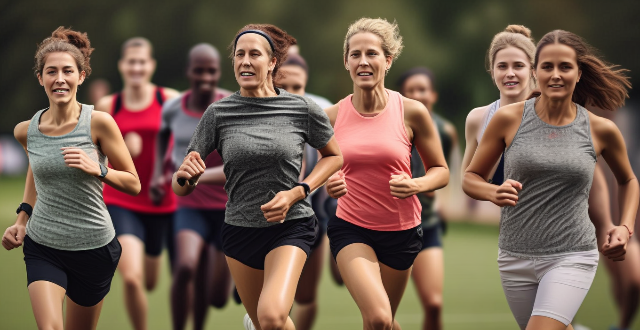
What are the benefits of participating in sports for teenagers' mental health ?
Participating in sports can have numerous benefits for teenagers' mental health, including improved self-esteem and confidence, reduced stress and anxiety, enhanced social skills and relationships, and improved sleep quality. Encouraging teenagers to engage in sports can be an effective way to support their overall mental well-being and promote healthy development during adolescence.

In what ways do sports promote mental and emotional growth in individuals ?
The article discusses the role of sports in promoting mental and emotional growth. It mentions that participating in sports can improve self-esteem, confidence, social skills, resilience, perseverance, time management, organizational skills, and stress reduction techniques. The benefits of sports extend beyond the athletic field and contribute to overall personal development and success in various aspects of life.

How do sports psychologists assist coaches in understanding and managing their athletes' mental health ?
Sports psychologists assist coaches in managing athletes' mental health by providing education, individual assessments, mental skills training, counseling, team building activities, crisis intervention, and feedback. This support helps coaches create a supportive environment for athletes to perform at their best mentally and physically.
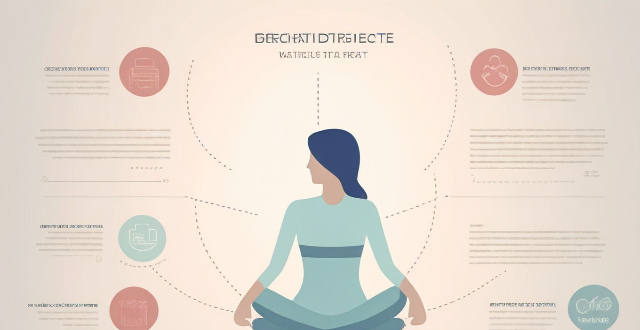
What are the effects of pregnancy and motherhood on women's mental health ?
The article discusses the impact of pregnancy and motherhood on women's mental health, highlighting both positive and negative effects. Positive effects include increased responsibility, improved social support, and enhanced emotional connection with the child. Negative effects may involve postpartum depression, anxiety disorders, and trauma-related disorders. Coping strategies such as seeking professional help, building a support network, and practicing self-care are recommended to manage any mental health challenges that arise during this period.

In what ways does exercise improve mental health, potentially reducing the risk of chronic diseases ?
Regular exercise has been found to have numerous mental health benefits, such as boosting mood and reducing stress, improving sleep quality, enhancing cognitive function, promoting social interaction, and boosting self-esteem and body image. Additionally, regular physical activity can potentially reduce the risk of chronic diseases like cardiovascular diseases, diabetes, and obesity. Incorporating exercise into your daily routine can improve both physical and mental well-being.

What strategies can coaches use to foster resilience and mental toughness in their athletes ?
Strategies for Coaches to Foster Resilience and Mental Toughness in Athletes: Emphasize the Importance of Mindset: Encourage positive self-talk, visualization techniques, and goal setting. Build a Supportive Environment: Create an open communication environment, promote teamwork, and provide constructive feedback. Teach Coping Mechanisms: Introduce stress management techniques, problem-solving skills, and time management strategies. Incorporate Adversity Training: Simulate pressure situations, discuss overcoming setbacks, and incorporate physical challenges. Lead by Example: Model resilience, share personal experiences, and show a commitment to continuous learning.

What is the psychology behind the "runner's high" and its impact on mental health ?
The "runner's high" is a state of euphoria or pleasure experienced during or after intense physical activity, such as running. It is linked to the release of endorphins in the brain, which act as natural painkillers and mood enhancers. The psychology behind this phenomenon involves several factors, including endorphin release, stress reduction through lowering cortisol levels, and social interaction. The "runner's high" has positive impacts on mental health, such as reduced anxiety and depression, improved self-esteem, better sleep quality, and increased resilience. By understanding these factors and incorporating regular physical activity into our lives, we can improve our mental health and overall well-being.

How do outdoor sports like hiking or mountaineering foster a deeper connection with nature and improve mental health ?
The text discusses the connection between outdoor sports, particularly hiking and mountaineering, and mental health. It highlights how these activities offer physical benefits such as fresh air and sunlight, which boost mood and energy levels, and the release of endorphins through physical activity. Mentally, being in nature encourages mindfulness and presence, reducing stress and anxiety, while the grandeur of nature can provide perspective on everyday worries. Physical challenges build stamina and resilience, with a sense of accomplishment from completing trails or reaching summits. Mental challenges include problem-solving and building resilience. Social interaction through shared experiences and forming supportive communities is also beneficial. Personal growth aspects include self-reliance and adaptability. The mind-body connection is emphasized through the meditative effects of nature and sensory engagement, as well as the physical well-being derived from cardiovascular health and muscle strength. Overall, outdoor sports like hiking or mountaineering provide numerous opportunities for improving mental health through various means.

How can sport psychology counseling help with mental health issues such as anxiety and depression in athletes ?
Sport psychology counseling is a valuable resource for athletes dealing with mental health issues such as anxiety and depression. It involves understanding the problem, setting goals, managing stress, building confidence, developing emotional intelligence, and fostering social support. Tailored approaches, consistency, and patience are key to achieving long-term success in improving both mental well-being and performance.